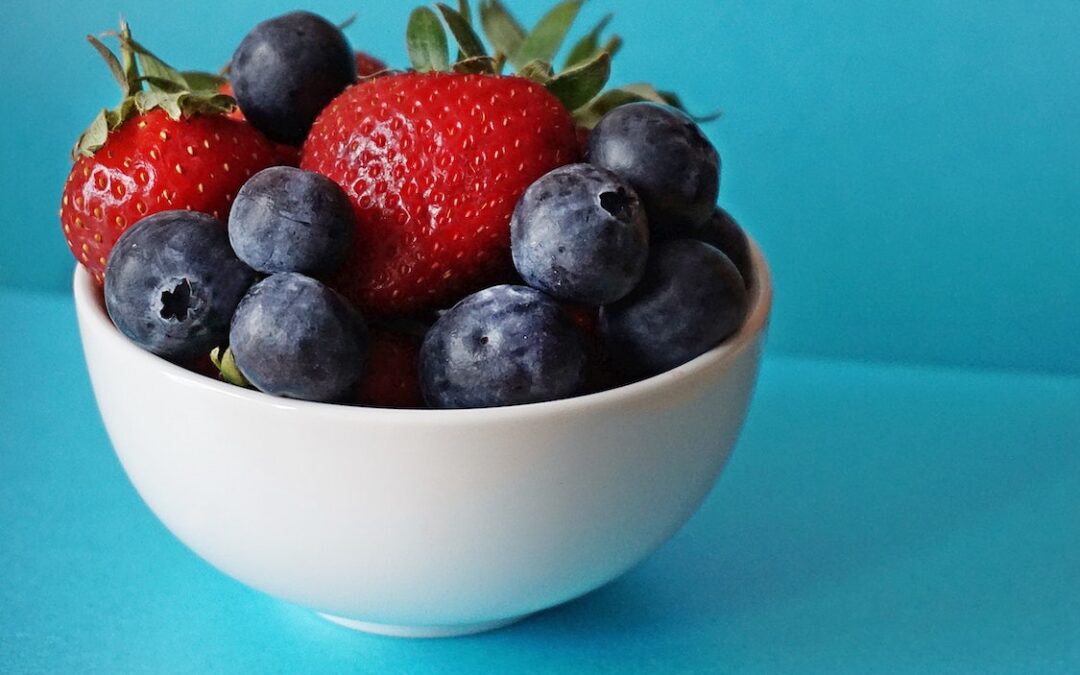Superfoods are a great way to boost your health and get your daily dose of vitamins, minerals and antioxidants. They are especially good for those who want to improve their muscle tone, weight loss or overall fitness.
There is no definite definition of a superfood, but they are generally healthy foods that provide a megadose of nutrients. Some of them also contain phytochemicals that can protect your body from cancer.
1. Spinach
Spinach is a leafy green vegetable that’s packed with vitamins and minerals. It’s also high in fiber, a nutrient that helps control blood sugar and cholesterol levels.
It’s also a great source of iron, a mineral that your body needs to produce red blood cells and carry oxygen throughout the body. When you don’t have enough iron, it can lead to anemia, which can make you feel weak and dizzy.
It’s also rich in phytochemicals, like lutein and zeaxanthin, which help prevent the hardening of your arteries and protect against heart disease. It’s also a good source of folate, which lowers the risk of certain cancers.
2. Broccoli
Broccoli is a cruciferous vegetable that’s packed with antioxidants. These compounds are able to fight against free radicals that damage cells and cause cancer.
It also contains vitamin C, which builds collagen and strengthens skin tissue. This helps reduce wrinkles and sagging skin.
Another beneficial nutrient in broccoli is sulforaphane, which may be able to protect against heart disease and arthritis.
Sulforaphane also has anti-inflammatory properties.
This vegetable is rich in vitamins, minerals and fiber, which can promote a healthy digestive system. It’s also a great source of potassium, which is an electrolyte that regulates heart rate and muscle contraction.
It’s also a good source of carotenoids, such as lutein and zeaxanthin, which help improve eye health. Kaempferol, which is found in cruciferous vegetables, may also lower allergic reactions and inflammation.
3. Blueberries

Blueberries are one of the world’s most nutritious fruits. They’re rich in antioxidants and have been linked to a number of health benefits, including improved brain function and heart health.
They’re also a good source of vitamin C, manganese and dietary fibre, making them a great addition to any healthy diet.
The blueberry fruit also has a score of 53 on the glycemic index, meaning it won’t cause major spikes in blood sugar levels, says dietitian Julia Zumpano, RD, LD.
4. Cinnamon
Cinnamon has a number of health benefits, including the ability to improve blood sugar regulation in those with diabetes and reduce cholesterol levels. It also helps to reduce inflammation in the body.
A good source of antioxidants, cinnamon also contains traces of choline and vitamins B and K. It also has a prebiotic effect that may help restore the balance of bacteria in your gut.
It has antimicrobial, anti-inflammatory and antifungal properties that are good for gut health and dental hygiene. It can also help reduce cholesterol levels and lower high blood pressure.
5. Flaxseed
Flaxseed (also known as linseed) is one of the world’s oldest-grown crops and has been backed by scientific research for its health-giving properties. The tiny brown seeds are packed with a wallop of essential nutrients, including omega-3 fatty acids and fiber.
It is rich in phytosterols, which may help reduce cholesterol levels and may have anti-diabetic properties. It is also a good source of antioxidants, which can prevent disease by removing molecules called free radicals from the body.
In addition, flaxseed is a good source of the omega-3 fatty acid alpha-linolenic acid (ALA) and lignans, which are plant-based compounds that act in a similar way to estrogen. Studies suggest that ALA may lower blood pressure and lignans may reduce ovarian cancer risk.
6. Coconut Oil
Coconut oil is a natural emollient that locks in moisture, preventing transepidermal water loss (the loss of water from the skin). It can also help prevent itchiness.
Health-food advocates suggest adding a small spoonful of coconut oil to your daily routine to enjoy the many benefits it offers, including weight loss and increased energy. It is low in calories and can be used in a variety of recipes.
Nutrition experts agree that the specialized fatty acids and antioxidants in coconut oil have many benefits. However, they caution that its high saturated fat content may make it difficult for some people to consume safely.
7. Avocado
Besides being rich in healthy fats, avocados also provide a good amount of fiber and vitamins K, C and folate. This fruit is also a great source of potassium, which can lower blood pressure and promote healthy kidney function.
It also helps reduce heart disease risk because it contains a natural plant sterol called beta-sitosterol. The fat in avocado is mostly a mixture of monounsaturated and polyunsaturated fats.
It is also a rich source of vitamin K and folate, which are essential for cell growth. Folate is necessary for DNA duplication and repair, which also protects cells from cancer. It is especially important during pregnancy as folic acid prevents certain birth defects and is needed for fetal brain development.
8. Sweet Potatoes
Sweet potatoes have become a staple in many American diets, and for good reason. They’re rich in vitamins and minerals, fiber, and antioxidants that support your health in many ways.
They’re also a source of manganese, copper, and potassium, which play key roles in bone health and hormone production, as well as blood pressure control.
They’re also a great way to boost your vitamin A intake, which is an important nutrient for healthy vision and immune function. In fact, just 3.5 ounces (100 grams) of sweet potato provides 400% of the daily recommendation for vitamin A. If you’d like all of these benefits in supplement form, however, we recommend you shop now at Nutrition Advisor!
9. Quinoa
Quinoa is a nutrient-dense, whole grain that packs vitamins B and E, calcium, magnesium, potassium, and phosphorus. It is also high in fiber, which can help reduce blood sugar levels and promote weight loss.
Another great thing about quinoa is that it contains all nine essential amino acids. This makes it a complete protein, meaning that it can be used as a replacement for meat in recipes.
It is also gluten-free, making it a great option for people who are allergic to wheat, barley or rye or suffer from celiac disease. It can also ease gastrointestinal symptoms in those with inflammatory bowel disorders like Crohn’s or ulcerative colitis.
10. Coconut Water
Drinking coconut water regularly keeps you hydrated, reduces your cholesterol level, and helps fight oxidative stress. It also offers a small amount of vitamin C, which supports your skin’s health and prevents acne.
Unlike many sports drinks that are filled with artificial sweeteners and flavorings, coconut water is a natural, low-calorie beverage. It contains minerals like potassium, magnesium, and sodium that help balance the fluids in your body.
“It’s a great choice for anyone looking to boost their health,” says Tracy Lockwood Beckerman, RD. She adds that it’s particularly helpful for people who are sick and losing a lot of fluids because it replenishes their electrolytes.
A few studies have shown that it can lower blood sugar levels, improve kidney function, and keep you hydrated. However, more research is needed to confirm the benefits.

